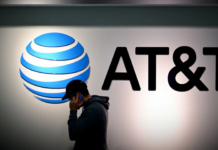GitHub recently unveiled Copilot Chat, a programming-oriented chatbot akin to ChatGPT, initially introduced for organizations subscribed to Copilot for Business. Following a beta phase for individual Copilot customers paying $10 per month, GitHub has now launched Chat for general availability to all users.
Copilot Chat is seamlessly integrated into Microsoft’s IDEs, Visual Studio Code, and Visual Studio. It’s included in GitHub Copilot paid tiers and offered for free to verified teachers, students, and maintainers of specific open-source projects.
Shuyin Zhao, GitHub’s VP of product management, emphasized the platform’s commitment to developers: “As the home to the world’s developers, we’ve introduced what is now the most widely adopted AI developer tool in history,” Zhao told TechCrunch. “And this is just the beginning of what we’re set to accomplish.”
The beta version of Copilot Chat, powered by GPT-4 (OpenAI’s premier generative AI model tailored for development scenarios), remains relatively unchanged. Developers can seamlessly engage Copilot Chat in natural language to seek real-time guidance, from clarifying concepts to detecting vulnerabilities or writing unit tests.
However, the model’s training on publicly available data, including copyrighted or restricted content, has led to legal concerns. Despite claims of fair use doctrine protection by GitHub, Microsoft, and OpenAI, lawsuits have arisen over alleged open-source licensing and IP violations.
When questioned about opt-out mechanisms for codebase owners regarding training data, Zhao mentioned no new mechanism introduced with the broader launch. Instead, she suggested keeping repositories private to avoid inclusion in future training sets.
While this suggestion might not sit well with codebase owners—many have valid reasons for keeping copyrighted code public, including bug hunting—GitHub appears firm on training data opt-outs, at least for now.
Generative AI models like GPT-4 have been prone to generating incorrect information, a significant issue within coding. A Stanford study highlighted that developers using AI assistants tend to produce less secure code due to the introduction of buggy or outdated code snippets.
Zhao stressed GPT-4’s improvement in reducing these inaccuracies compared to its predecessor in Copilot. Moreover, Copilot Chat includes filters for insecure code patterns, flagging vulnerabilities like hardcoded credentials, SQL injections, and path injections. However, she emphasized the essential role of human review for any AI-generated code.
Despite Microsoft CEO Satya Nadella’s mention of Copilot’s popularity among paying users and enterprise clients, GitHub faces profitability challenges. The underlying high costs of running AI models have impacted profitability, echoing the struggle experienced by other AI-focused startups.
As GitHub navigates Copilot’s profitability, Amazon’s CodeWhisperer emerges as a formidable competitor. Amazon continues to enhance CodeWhisperer, offering features such as single sign-on with AWS Identity and Access Management integration, security vulnerability scanning, and tailored app development suggestions.
Beyond CodeWhisperer, Copilot contends with competitors like Magic, Tabnine, Codegen, Laredo, alongside open-source models like Meta’s Code Llama and Hugging Face’s and ServiceNow’s StarCoder.











